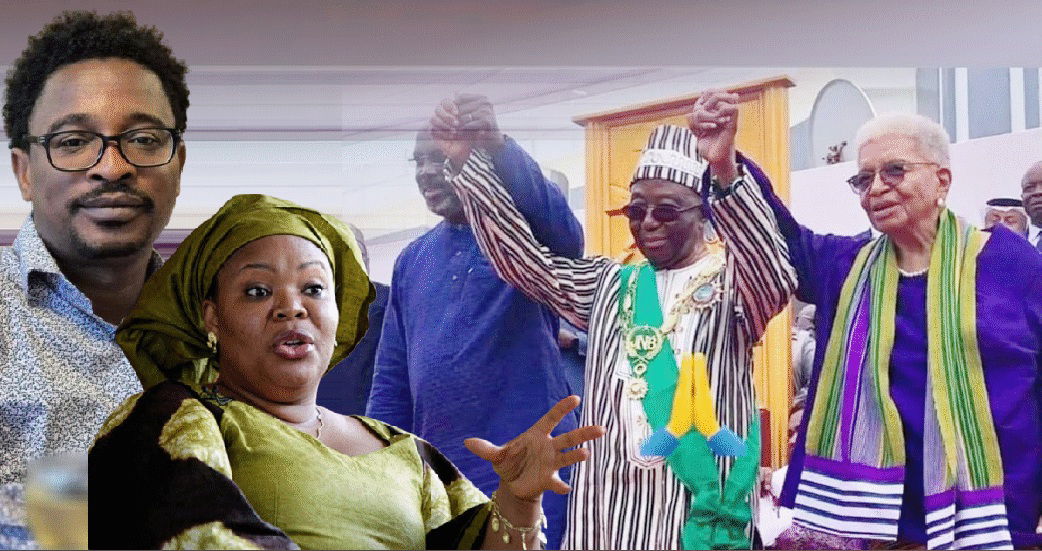Liberian Economist Rebukes Leymah Gbowee’s Misleading Comparison of Liberian Administrations

Wednesday, June 25, 2025
Prominent Liberian economist, T. Kudah Jairus, has issued a strong rebuttal to recent remarks made by Nobel Laureate Leymah Gbowee, in which she drew comparisons among the successive administrations of Presidents Ellen Johnson Sirleaf, George Manneh Weah, and the incumbent Joseph Nyuma Boakai. Jairus characterized Gbowee’s critique as not only misleading but also intellectually dishonest and unhelpful to Liberia’s ongoing democratic discourse. In a detailed statement released earlier today, Mr. Jairus described Madam Gbowee’s commentary as lacking nuance, fairness, and context, asserting that her attempts to equate administrations with vastly different historical, financial, and political conditions undermine the complexity of governance in a post-conflict nation like Liberia.
“Madame Gbowee, with all due respect, it is intellectually dishonest to equate or draw direct comparisons between a government that served for 12 years, one that served for 6 years, and a newly inaugurated administration that is barely 1.5 years into its mandate,” Jairus declared. Jairus emphasized that the Ellen Johnson Sirleaf administration had the advantage of international goodwill in the post-conflict era. According to him, Liberia, during that time, received substantial financial and technical support from the international community. These resources were critical for post-war reconstruction, rebuilding national institutions, and reintegrating Liberia into the global economy. “President Sirleaf inherited a country emerging from brutal civil conflict, but also benefited from an unprecedented level of donor engagement and aid,” he noted. “Her government had 12 years to lay the foundation for national recovery with massive international assistance — a luxury not equally available to her successors.”
In contrast, Jairus pointed out that President George Weah’s administration encountered a significantly constrained fiscal space. The economist highlighted that donor fatigue had set in by the time Weah took office, and his administration had to grapple with waning external financial assistance and mounting expectations from a youthful population hungry for economic opportunity. “Let us not forget the impact of the global COVID-19 pandemic, which struck during Weah’s term,” Jairus continued. “The pandemic upended economies worldwide, and Liberia, with its fragile health system and limited economic resilience, was particularly hard-hit. These are not excuses, but critical contextual factors that must be acknowledged in any fair analysis.” Jairus was especially critical of attempts to assess President Boakai’s administration, which he noted has been in office for just over a year. According to him, it is “premature and unreasonable” to deliver a verdict on an administration still in its foundational stages. “Nation-building is not instant coffee. Structural reforms and institutional strengthening take time,” Jairus stated. “The Boakai administration is in the early stages of governance, and while it is fair to expect transparency and accountability, it is intellectually dishonest to compare 1.5 years of governance with 6 and 12-year tenures.”
Jairus called on Liberians and the international community to embrace balanced and constructive criticism rooted in facts and grounded in context. He warned that public figures such as Madam Gbowee wield influence, and thus bear a responsibility to ensure their critiques are not only well-informed but also devoid of political bias or oversimplified narratives. “Any credible comparison must take into account the level of international support received, prevailing global economic trends, and domestic socio-political challenges,” Jairus emphasized. “Ignoring these variables leads to skewed assessments that do not reflect the true performance or challenges of any administration.” He went on to describe Madam Gbowee’s analysis as “hypothetical and dangerously deceptive,” cautioning that such discourse risks polarizing the public rather than informing it. “If we are to have a meaningful national conversation about governance, accountability, and development, it must be rooted in truth, objectivity, and fairness. Selective criticism and blanket comparisons do more harm than good,” Jairus concluded.


